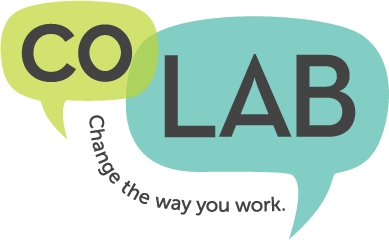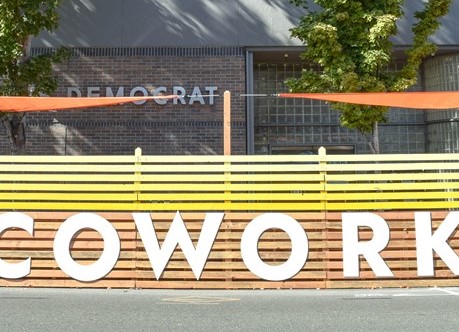Before the pandemic, coworking spaces were on the rise, with the flexibility they offered appealing to workers across industries. While the coworking trend began in major cities, it has spread to rural regions as well; Proximity, a coworking software platform had more than 250 rural spaces in its network in 2020.
To learn more about how rural coworking spaces make an impact, Center on Rural Innovation (CORI) spoke with Kate Schwarzler, founder of Indy Commons, a coworking space and business hub in Independence, OR—one of our Rural Innovation Network Communities. When CORI works with rural communities, they take a comprehensive approach to developing digital economy ecosystem strategies. They see Coworking and Entrepreneurship Spaces as part of a community’s “Necessary Infrastructure”—the components that allow a place to compete in the digital economy. Below CORI shares Kate’s top 4 reasons why coworking matters in small town communities.
Why rural coworking matters
1. Coworking spaces improve the local business community and make main street vibrant.
Coworking provides more than just space to work. A successful space can offer resources to the business community, make connections that advance local commerce, and host events that foster a stronger business climate. Many remote workers or sole proprietors often have to work from home or from less expensive locations outside the town center since paying higher rent doesn’t make business sense. A downtown coworking space, however, can give people like this an opportunity to work on main street in the center of the action—both better incorporating these talented people into the community and driving traffic and business to other nearby shops.
2. Coworking spaces can create community, especially in a post-COVID environment for remote workers.
It’s easy to see coworking as simply selling desks, selling wifi, or selling a coffee pot. But in reality, coworking spaces are about selling a sense of community—and one where people can actively participate. Coworking spaces can serve as the home base for groups of like minded individuals and businesses that want to combine flexibility with the social camaraderie of the traditional office. Knowing that there are people dealing with similar issues, people to bounce ideas around with, people to learn from and share opportunities with—the benefits are huge. This is especially true for remote workers in rural areas, who often don’t have outlets to connect with or even find each other. With a coworking space as a central hub, this community of talented people can build social bonds at a place where they can also advance their careers.
3. Coworking spaces create new kinds of opportunities in rural areas that improve quality of life.
Rural areas are known for their high quality of life: beautiful scenery, strong communities, open space, lower costs of living, and more. But too often, people don’t see these towns as places for a career. With a strong coworking presence, rural communities can have both. Coworking spaces offer a home for remote workers and longtime residents alike looking to connect in new ways. As Kate put it, the opportunities presented by rural coworking “allow people to write their own life, plan their own life, and realize they can live in these amazing rural areas while also having a career that is fulfilling and exciting.” By adding this integral component to local ecosystems, coworking spaces both expand and tap into existing community assets to create a more diversified and sustainable economy.
4. Coworking spaces can elevate a culture of entrepreneurship to the next level.
A rural coworking space will are more likely to succeed when they have the support of the community. That takes legwork, because often coworking is a new concept to many small towns. But if the town culture is one that encourages experimentation, innovation, and forward-thinking, then with time, coworking spaces can be seen for the assets they are. This is most true when the community has a culture of inclusive technology, with an active effort made to encourage all groups to participate and be celebrated. With this culture and physical space both in place, communities can build on their Coworking infrastructure to lay the groundwork for a stronger digital economy ecosystem that drives entrepreneurship and local business success.
Learn more about coLAB and how to become part of the community HERE
Original Article by: Center on Rural Innovation
Link to article HERE.

